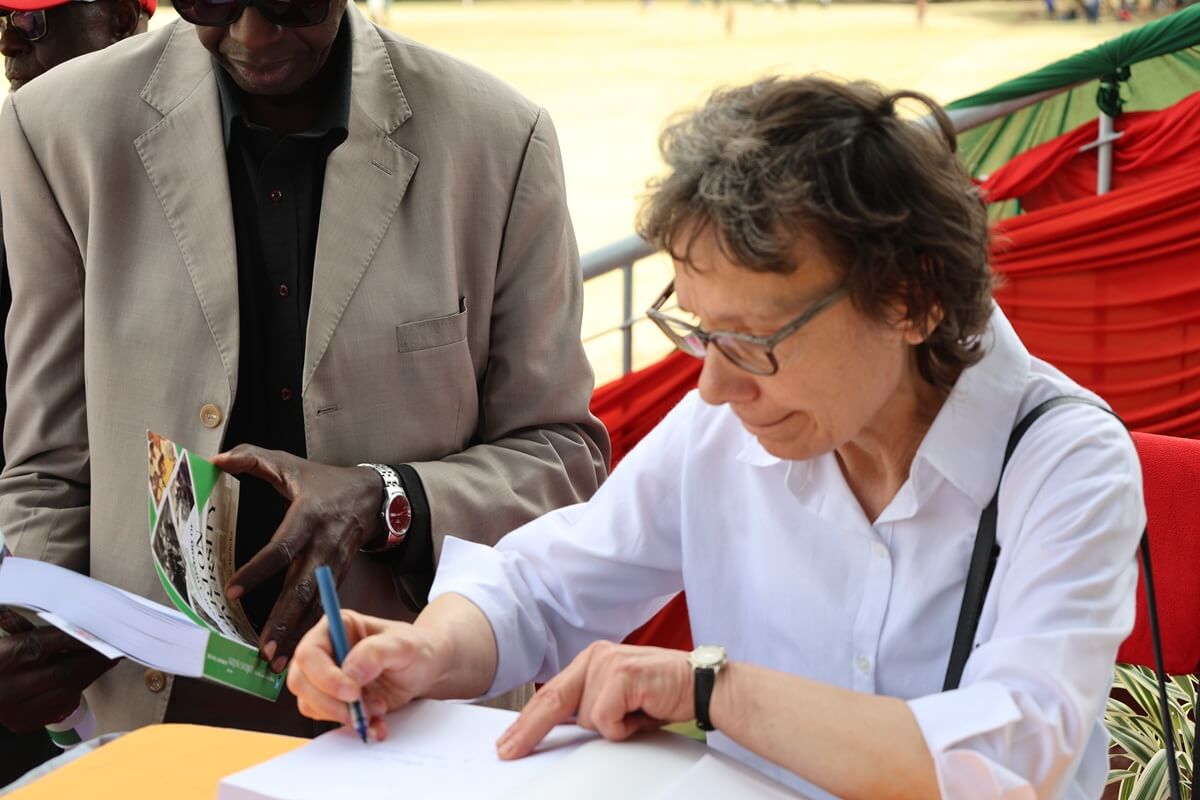Egerton University recently hosted Nanjing Agricultural University at its Vice-Chancellor's Boardroom and various other parts of the campus, further solidifying the collaboration between the two institutions. The visit was marked by a special invitation extended to Prof. Isaac Kibwage, Vice-Chancellor of Egerton University, to visit Nanjing Agricultural University in China. This invitation was issued by Prof. Liu Yutao, Chinese Director of the Confucius Institute at Egerton, symbolizing the growing bond between the two universities.
Accompanying Prof. Kibwage on this significant trip were several university leaders, including Prof. Richard Mulwa, Deputy Vice-Chancellor for Administration, Finance, and Planning; Prof. Arnold Opiyo, the Kenyan Director of the Confucius Institute; Prof. Nzula Kitaka, Director of Marketing and Resource Mobilization; Prof. Samuel Mwonga, Director of the Crop Mnagagement Research and Training (CMRT); and Prof. George Owuor, Director of Research at Egerton University.
The main focus of the discussions was the grafted tomato project, a joint venture between Egerton University and Nanjing University. The pilot project has proven successful, benefiting Kenyan farmers by improving tomato yields. As a result, there is a growing demand from farmers for continued support, particularly in scaling up the project through greenhouse farming. Egerton University is committed to expanding the initiative to reach more farmers, aiming to boost agricultural productivity across Kenya.
In addition to agricultural developments, the Nanjing University delegation visited Egerton’s Language Lab and participated in language classes. Their visit was part of ongoing efforts to enhance academic exchanges and deepen collaboration. The group also engaged with the Centre of Excellence in Sustainable Agriculture and Agribusiness Management (CESAAM), exploring further opportunities for cooperation. As part of their tour, the delegation plans to visit Turi and Bahati to meet with farmers who have adopted the grafted tomato initiative, gaining insights into its impact on their livelihoods.
Prof. Kitaka also highlighted the upcoming Egerton University Career Week, which will offer Chinese companies a platform to present their products and recruit students for job attachments. This event is designed to foster connections between Chinese firms and Kenyan students, opening up valuable career opportunities for the future workforce.
During the discussions, Prof. Mulwa spoke about the significant role the China Belt and Road Initiative has played in facilitating the development of Egerton University, particularly in the creation of the Molecular Lab. He also mentioned the exciting opportunity for Nanjing University students to visit Egerton for research projects focused on maize fields. This collaboration extends beyond agriculture, with organizations such as AGRA, WFP, and FAO also partnering with Egerton to strengthen research efforts and enhance food security in Kenya.
The former Director of the Confucius Institute emphasized the importance of continued academic and industry collaboration, expressing a strong desire to expand these partnerships. Prof. Kibwage reassured the visiting delegation of Egerton University’s full commitment to supporting these initiatives. “My office will fully support these projects and help ensure their growth,” he affirmed.
Prof. Kitaka, an expert in biological sciences and limnology, also highlighted the potential for partnerships with Chinese institutions in the field of water studies, noting that China is a global leader in the blue economy.
Egerton University remains dedicated to fostering these international collaborations, aiming to drive sustainable growth, innovation, and development in multiple sectors, including agriculture, research, and career development.
















